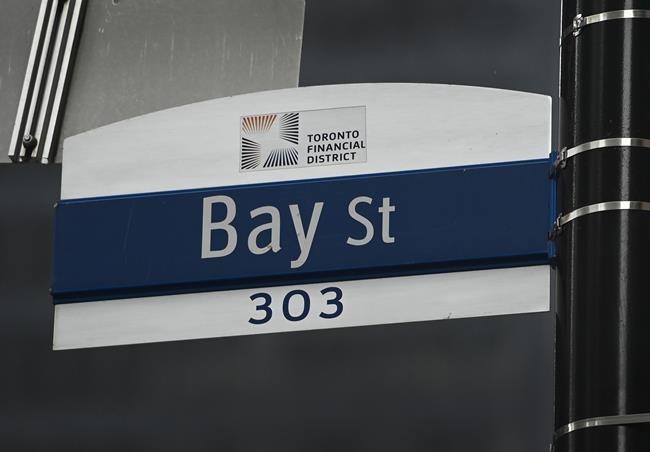TORONTO — The loonie climbed to its highest level in nearly three years Thursday on anticipation that a global economic recovery will drive global demand for Canadian commodities.
The Canadian dollar traded for 79.03 cents US after hitting an intraday high of 79.22, its strongest level since April 2018. It compared with 78.68 cents US on Wednesday.
"If we have a global recovery, it's oil demand, it's metals demand and Canada is a big supplier of those commodities to the rest of the world," said Anish Chopra, managing director with Portfolio Management Corp.
The currency moved up amid a further gain in crude oil prices.
The February crude oil contract was added 66 cents to US$53.57 per barrel. The February natural gas contract was down 6.1 cents at nearly US$2.67 per mmBTU.
Crude levels powered the energy sector to gain 2.5 per cent, with shares of Canadian energy producers Crescent Point Energy Corp. surging 8.9 per cent, Cenovus Energy Inc. up 5.2 per cent and Husky Energy Inc. 5.1 per cent higher.
Health care led the TSX higher, gaining six per cent as interest in cannabis names grew with the potential further opening of the large U.S. market following a Democratic sweep of the U.S. government.
Aphria Inc. soared 20.1 per cent after it swung to an adjusted profit on higher revenues, while shares of Aurora Cannabis Inc. were up 8.9 per cent.
The two sectors led the S&P/TSX composite index slightly higher. It closed up 23.35 points to 17,958.09.
In New York, the Dow Jones industrial average was down 68.95 points at 30,991.52 despite hitting a new high in earlier trading. The S&P 500 index lost 14.30 points at 3,795.54, while the Nasdaq composite was down 16.31 points at 13,112.64 after a record start to the day.
Overall, North American markets were relatively flat as investors awaited incoming U.S. President Joe Biden to unveil his stimulus package in an evening speech.
"I think people and investors are certainly waiting on Joe Biden's speech tonight where he talks about the amount of stimulus that he's going to put into the economy and it looks like it will be $1.5 trillion or more," Chopra said in an interview.
The morning started with the U.S. reporting that unemployment claims increased beyond expectation amid higher COVID-19 infections and further lockdowns.
First-time claims increased to 965,000, the highest level since August and above the 784,000 in the prior week.
The weak numbers are good news for investors because it means interest rate increases won't be coming soon and assists Biden's efforts to add fiscal stimulus, said Chopra.
"It offers a lot of support for stimulus both fiscal stimulus coming from Joe Biden and monetary stimulus coming from the Fed."
Federal Reserve chairman Jerome Powell confirmed Thursday that interest rates won't rise as long as inflation remains low.
Materials slipped near the end of trading and were down slightly on the day.
The February gold contract was down US$3.50 at US$1,851.40 an ounce and the March copper contract was up 4.75 cents at US$3.66 a pound.
Technology also moved lower with shares of Shopify Inc. off 2.3 per cent, even as BlackBerry Ltd. gained 21.3 per cent.
Industrials lost 1.3 per cent despite gains by Air Canada. Its shares rose 3.9 per cent after the CEO of Delta Air Lines called 2021 a year of recovery after posting a US$12.4-billion loss for 2020, its largest in the company's history.
This report by The Canadian Press was first published Jan. 14, 2021.
Companies in this story: (TSX:AC, TSX:BB, TSX:CPG, TSX:CVE, TSX:HSE, TSX:APHA, TSX:ACB, TSX:SHOP, TSX:GSPTSE, TSX:CADUSD=X)
Ross Marowits, The Canadian Press
Note to readers: This is a corrected story. An earlier version included incorrect stock movement for BlackBerry Ltd.

